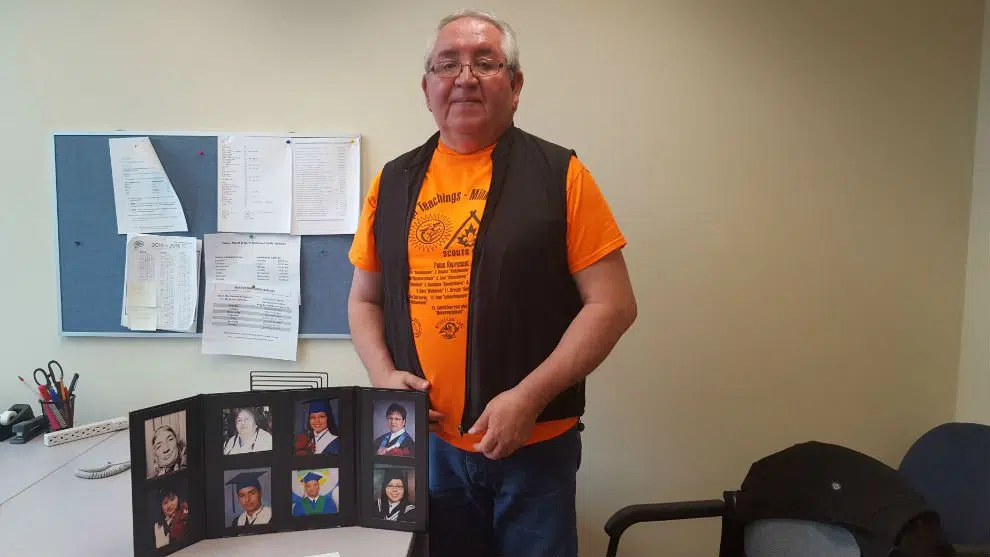
Residential school survivor shares story on Orange Shirt Day
A Red Pheasant First Nation elder feels fortunate to have overcome the trauma he experienced at a residential school.
Reg Bugler said traditional practices and ceremonies, as well as his wife, helped him forgive and overcome the damage caused during a year he spent at St. Michael’s Residential School in Duck Lake.
“The more you talk about your experiences, the more enlightened you become, the more you share your experiences in a controlled safe way you feel better about it,” he said. “If you don’t let it out it’s going to eat you away and kill you.”
Bugler, a cultural advisor and grief counselor, compared the damage caused by holding in emotions to a blood blister. If you allow it to build up, it just becomes more and more painful, but if you release the pressure you immediately feel the pain start to lessen.


